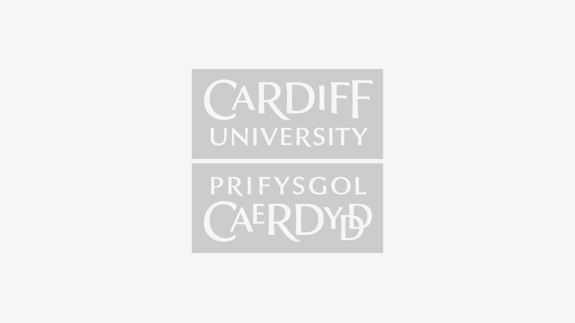A Cardiff University scientist has been recognised for his groundbreaking research, including work to enable safer and cleaner manufacturing of PVC plastic.
Regius Professor of Chemistry Graham Hutchings CBE FREng FRS is the recipient of the Royal Academy of Engineering's prestigious Armourers and Brasiers Company Prize for 2025.
Supported by the Worshipful Company of Armourers and Brasiers , the £2,000 prize rewards excellence in materials engineering by an engineer in the UK.
Professor Hutchings was presented the award by Mike Goulette FREng, Past Master of the Armourers and Brasiers, at the annual Fellows' Day held at Prince Philip House in London.
He said: "It's a real honour to have our work on gold catalysis recognised with this award from the Academy. Of course, these milestones are not achieved alone and so I accept it on behalf of the team of people who have made the innovation happen. Not least of which, our partners in industry."

It's these types of relationships between researchers and practitioners that are so crucial for unpicking some of the grand challenges of our time. Our work replacing mercury with gold as a catalyst for PVC manufacture will deliver immense benefits for society and so it's gratifying that the Academy has recognised its importance with the Armourers and Brasiers Company Prize.
While working in industry in South Africa in the 1980s, on secondment from his first job at Imperial Chemical Industries, Professor Hutchings was shocked to find that toxic mercury catalysts were being used to convert acetylene to vinyl chloride monomer, a key step in the production of PVC plastic.
Gold was previously considered to be catalytically inactive, but Professor Hutchings predicted - and later confirmed by experiment - that gold could work as a catalyst for acetylene hydrochlorination.
This insight opened up a whole new field of catalysis based on supported gold.

In the US and Europe, mercury-catalysed processes have been superseded by more economical and greener processes based on ethylene. However, the acetylene route is still widely used in China.
Through a research partnership with Johnson Matthey, Professor Hutchings' gold catalyst formulation has been refined so it can be used commercially and manufactured sustainably at large scale.
Johnson Matthey's PRICAT™ Mercury Free Catalyst is now fully commercialised and in operation at multiple factories in China.
Based on the successful rollout of this mercury-free catalyst, China ratified the Minamata convention in 2016 and one year later the convention was written into International Law signalling the end of the use of mercury in all applications globally.
For new acetylene-based plants, mercury is now banned, and existing producers will have to replace their mercury catalyst within five years. This will allow mercury to be phased out before the mandatory ending of mercury mining in 2032.
Professor Hutchings and his team at the Cardiff Catalysis Institute have also pioneered the use of gold as a catalyst in many other reactions, including a new way of purifying water, offering exciting possibilities for addressing water shortage in arid areas.
Professor Hutchings' research enabled the commercialisation of gold as a catalyst and represents the first time in over 50 years that there has been a complete change in catalyst formulation for the manufacture of a commodity chemical.
"Replacing mercury catalysts with gold will prevent over 1,000 tons per year of mercury being emitted to the environment."







